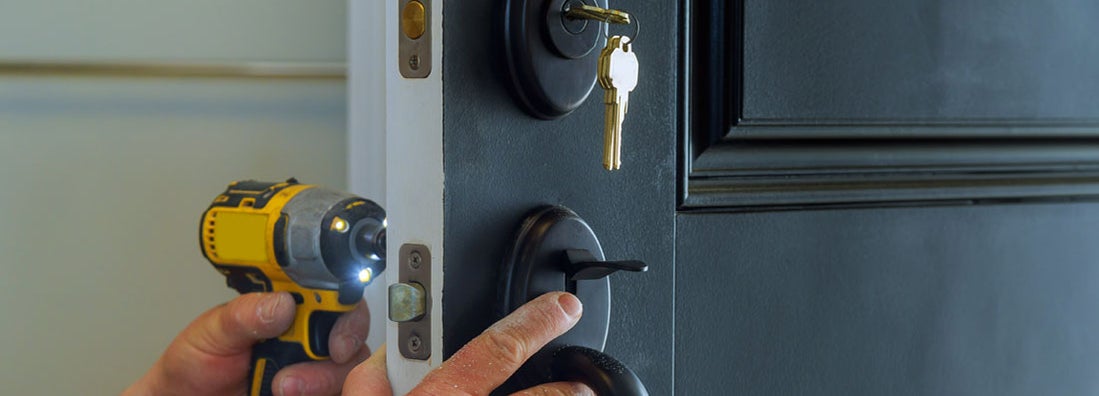4 Ways Your Home Insurance Is Draining Your Savings

Jeff Green has held a variety of sales and management roles at life insurance companies, Wall street firms, and distribution organizations over his 40-year career. He was previously Finra 7,24,66 registered and held life insurance licenses in multiple states. He is a graduate of Stony Brook University.

Buying a home is a major investment and the spending doesn't end after you make your purchase. You then have to pay to protect your new home. Home insurance can get expensive, fast, so how do you keep your insurance from making you house poor?
Fortunately, there are multiple solutions, and they all start with working with an independent agent. An agent knows the secrets to lower your home insurance rates and can help you secure coverage that still leaves you some money in the bank. To know if you're overspending, you first need to understand the four ways your home insurance may be draining your savings.
1. You're Underpaying on Your Deductible
Whether you're a first-time homebuyer or recently changed houses, it can be difficult to know if you're getting a good deal on your home insurance. Oftentimes, carriers will work the price into your mortgage so you may not even be paying attention to how much you're paying.
Every home insurance policy will have a deductible. Your deductible is the amount of money you pay out of pocket before your home insurance kicks in to cover a claim.
If your deductible is $1,500 and your home experiences $10,000 worth of fire damage, you would be responsible for paying $1,500 out of pocket before insurance would cover the remaining cost.
For this reason, the higher your deductible, the lower your home insurance premiums. The more you're willing to pay out of pocket for a claim the less you have to pay towards your coverage.
2. You're Not Bundling Your Home Insurance Coverage
Most carriers will offer a discount to individuals who purchase multiple types of insurance from the same company. You can bundle your homeowners insurance in a variety of ways.
- Home and auto: If you own a house and drive a car it's a no-brainer to bundle these coverages together under the same carrier in order to save money.
- Home and life: Finding a carrier that allows you to bundle life insurance with your home insurance can result in savings.
- Home and umbrella: Umbrella policies add extra coverage that goes above and beyond your policy limits.
- Home and business: If you own a business, you can combine your business insurance with your homeowners.
- All of your coverages: Most insurance carriers will provide coverage for all types of insurance, so combine them all under the same company to receive the biggest savings.
3. Your Home Doesn't Have the Latest Safety Features
The safer your home, the fewer risks there are for accidents, break-ins, and theft. This includes making your home more resistant to windstorms and severe weather if you live in an area that is prone to hurricanes and tornadoes. Insuring a home that is not updated with safety precautions can be negatively impacting the price you pay.
Take these steps to make your home safer
- Add monitored security systems
- Install smoke and carbon monoxide alarms
- Add deadbolts to doors
- Install a sprinkler system
- Add storm shutters
- Keep your roof maintained
- Install a water shut off device
An insurance agent can go through your home with you and make suggestions on safety measures you can take that can help you save money on your insurance.
4. You're Not Shopping Multiple Home Insurance Quotes
To know if you're paying too much, it helps to know the average home insurance costs nationwide and in your state. The national average cost of homeowners insurance is $1,211 but as you can see below, this price varies greatly from state to state.
| Average home insurance costs by state | |
| Alabama | $1,433 |
| Alaska | $959 |
| Arizona | $825 |
| Arkansas | $1,373 |
| California | $1,008 |
| Colorado | $1,495 |
| Connecticut | $1,479 |
| Delaware | $833 |
| District of Columbia | $1,235 |
| Florida | $1,951 |
| Georgia | $1,267 |
| Hawaii | $1,102 |
| Idaho | $730 |
| Illinois | $1,056 |
| Indiana | $1,000 |
| Iowa | $964 |
| Kansas | $1,584 |
| Kentucky | $1,109 |
| Louisiana | $1,968 |
| Maine | $882 |
| Maryland | $1,037 |
| Massachusetts | $1,488 |
| Michigan | $942 |
| Minnesota | $1,348 |
| Mississippi | $1,537 |
| Missouri | $1,285 |
| Montana | $1,174 |
| Nebraska | $1,481 |
| Nevada | $755 |
| New Hampshire | $972 |
| New Jersey | $1,192 |
| New Mexico | $1,017 |
| New York | $1,309 |
| North Carolina | $1,086 |
| North Dakota | $1,253 |
| Ohio | $862 |
| Oklahoma | $1,885 |
| Oregon | $677 |
| Pennsylvania | $931 |
| Rhode Island | $1,551 |
| South Carolina | $1,269 |
| South Dakota | $1,202 |
| Tennessee | $1,196 |
| Texas | $1,893 |
| Utah | $692 |
| Vermont | $918 |
| Virginia | $999 |
| Washington | $854 |
| West Virginia | $940 |
| Wisconsin | $779 |
| Wyoming | $1,159 |
In addition, the cost of homeowners insurance can increase rapidly based on a number of factors. In essence, the bigger your home and the more assets you have, the more your home may cost to insure. However, things like local crime rates, potential weather risks, marital status, deductible, and even credit history impact your rates.
Insurance expert, Jeffrey Green, suggests getting multiple quotes from different insurance carriers and comparing prices. An agent can help you shop and compare quotes.
Here's How an Independent Insurance Agent Can Help
Before you let your homeowners insurance eat up your life savings, let an insurance agent assist you in finding affordable home insurance. An agent will chat with you, free of charge, to learn about your home and insurance needs.
Agents have your back from beginning to end, and will even assist you in filing a claim if you need it. Plus, they stay on top of insurance trends and can help you adjust your policy at any time. Work with an agent today.
